Welcome back to the 18 Stripes Film Room. I’ve been off the past few weeks recruiting grizzly bears for Larz’s secret training program. It’s hard work but someone has to do it.
Today we’re going to take a look at Ian Book’s touchdown pass to Chase Claypool. It’s a good look at how Chip Long schemes up space to throw the ball inside the 10 yard line.
The Play
It’s Notre Dame’s first drive of the second half. The defense forced a quick punt and now the Irish have a chance to start putting some distance between them and the Demon Deacons on the scoreboard.
It’s 2nd and Goal and the Irish come out with four receivers. Miles Boykin lines up by himself at the top. At the bottom, the receivers are in a bunch set. Alize Mack is the top with Nic Weishar to his right and Chase Claypool to his left.
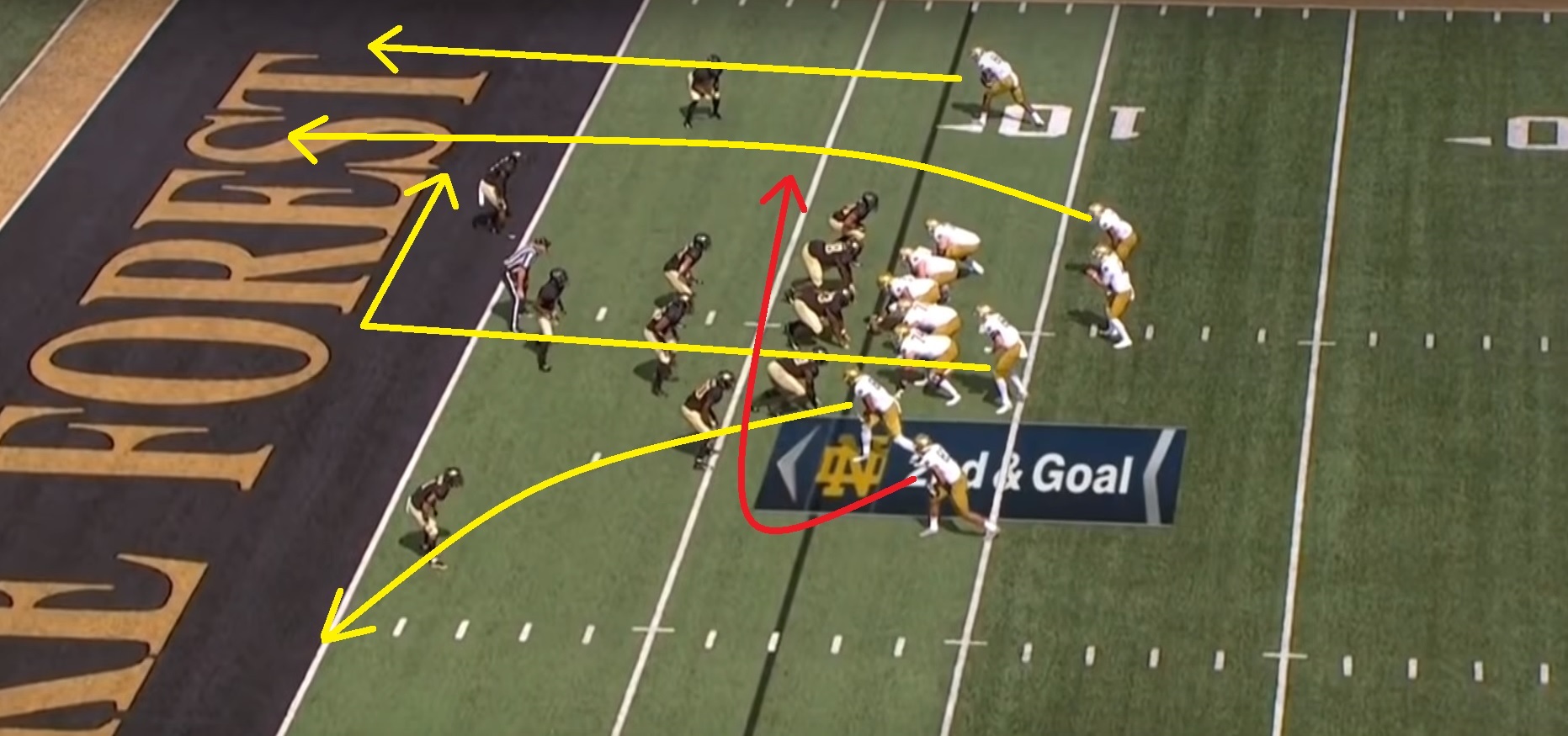
The routes are designed to open up space for Claypool underneath. Boykin simply runs a fade to occupy the safety to his side. Mack runs a flat route to the outside to pull a defender away. Weishar runs a deep in route to bring defenders deep. And Tony Jones runs a seam route to add another receiver for the defense to worry about. Underneath all of this, Claypool (red arrow) fakes to the outside, then runs a drag route two yards deep.
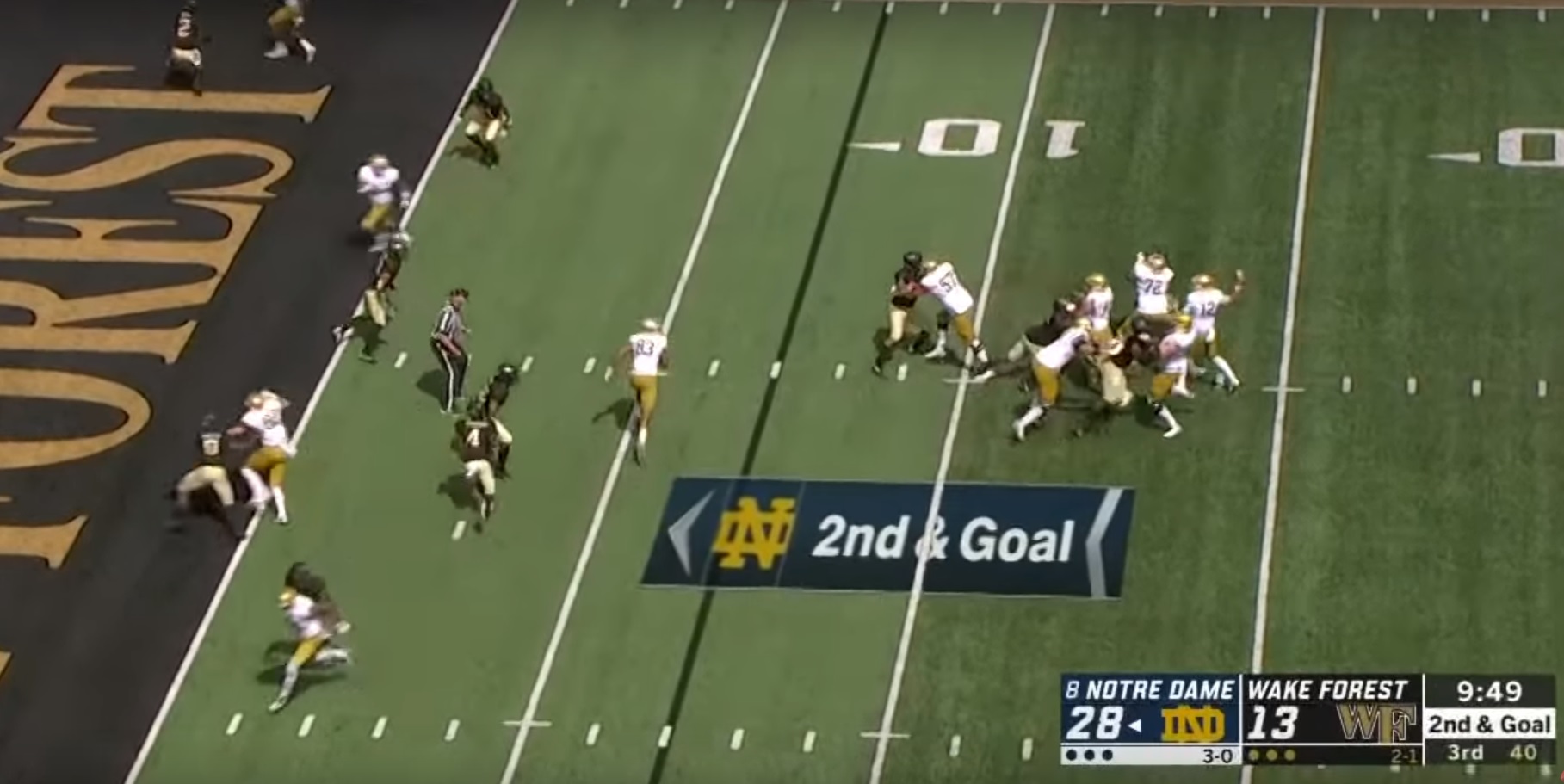
You can see how this opens up Claypool beneath the defense. Boykin, Mack, and Weishar are all occupying defenders. Wake Forest still has four defenders but they’re all in a bind.
You can see the cornerback, #4, trying to catch up to Claypool, but he’s too far behind to impact the play.
The other three defenders are playing some kind of zone. The linebacker in the middle of the field has just passed Weishar to the back defender so he’s not going to catch Claypool.
The other linebacker at the hash marks has to worry about Jones. If he steps up to cover Claypool, Jones would be wide open in the end zone.
Finally, the corner near the top also has to keep an eye on Claypool, but if he steps up Book can loft a fade to 6’5 Miles Boykin.
This all leads to an open Claypool, who catches the ball at about the five yard line and turns up field to the end zone.
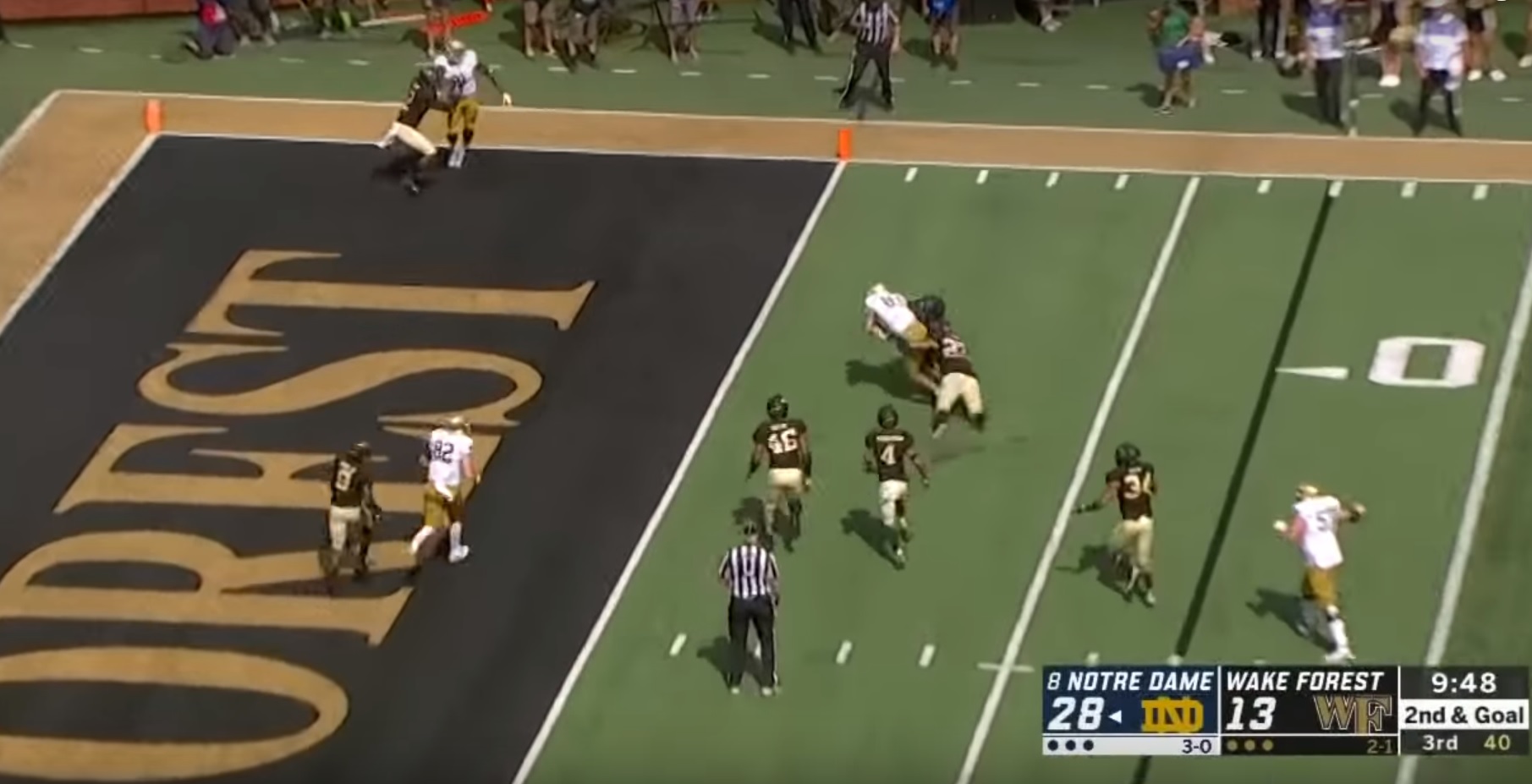
Wake Forest does have two defenders there to meet him at the three yard line, but there’s a reason you throw this pass to your 6’4 227 lb. receiver. Claypool drags them forwards then reaches the ball across the line for a TD.
Here’s the play in its entirety:
It’s not easy to throw the ball in the red zone, but Chip Long put together a nice play that utilized the big receivers on Notre Dame’s roster.
Final Thoughts
Honestly, I was skeptical of the Ian Book experiment, as my fellow writers can attest. I thought the issues on offense went deeper than just the quarterback. Not that I thought Wimbush was playing great, it’s that more needed to be fixed than who was throwing the passes. I thought the coaches were applying a new coat of paint to a house whose foundation was crumbling.
56 points later, I guess the coaches made the right call. The offense looked completely different. Now, the Wake Forest defense is probably good for what ails you on offense, but you can’t ignore how well Book moved the team up and down the field.
I agree with Eric that it seems strange that we didn’t run the ball a whole lot, but I’m not too concerned about that.
First, the Irish ran the ball effectively all game. If they had wanted to run for 350 yards, they probably could have.
Second, it looked like Long tried to get Book into a rhythm early on. We saw a lot of quick passes and simple reads on the first few drives.
And third, if Book is going to be the starter going forward, running the ball 60 times doesn’t help him and doesn’t help the coaches know what he can do. Not that I advocate treating games like scrimmages (*cough*Ball State*cough*) but Book was clearly playing well so it’s almost a no-brainer to see what he’s capable of.
We’ll see how well Book plays against Stanford. They’re a different beast than Wake Forest, but he passed his first test. It will also be interesting to see if and how the coaches use Brandon Wimbush going forward.
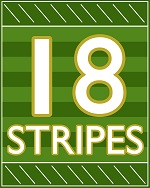
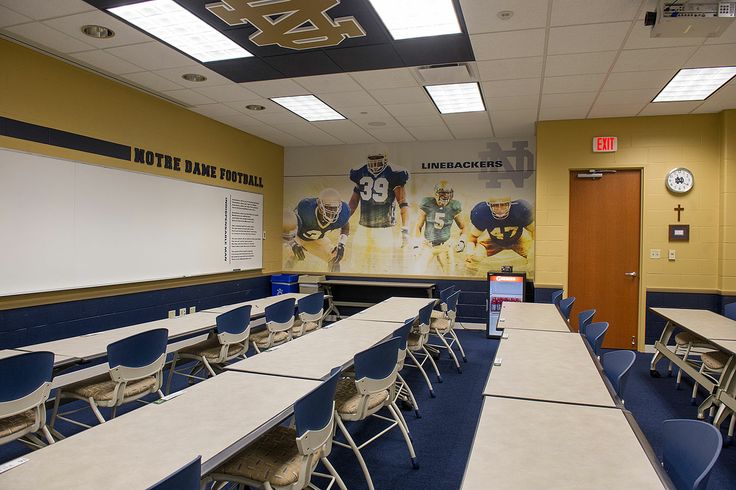



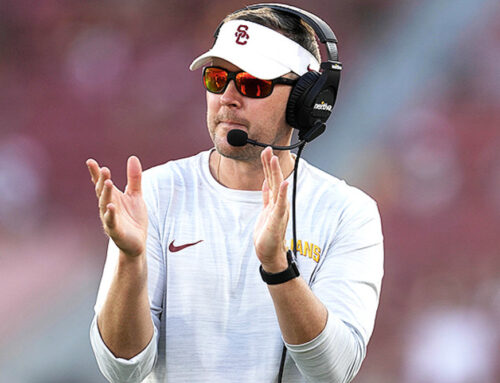
This is also a good example of a combo man/zone beater. Claypool’s drag is a perfect man-beater (especially out of the bunch formation) which, with Weishar’s route, makes a drive concept against the linebackers should they be playing in a zone.
The seam route out of the backfield is also open on this play because of Claypool’s underneath route — just a lot of defenders in conflict all over the field on this play. Love it
Yup. If Book had waited half a beat more, he probably could have hit Weishar for the touchdown and if the MLB had stepped up to cover Claypool, Davis would have been wide open. But at the end of the day, it was an easy read (I’m guessing Claypool is the primary option here) and a nice throw by Book. Really well-designed play.
I was thinking the same thing – lots of D chaos and the seam rout was so open.
But more importantly, is your handle a shout-out to the great Pat Burns (who passed away in 2010), or is that just a coincidence? I have to know.
route*
I think we should save the “man-beater” talk for AD
Great breakdown of that play! I was amazed at how open Tony Jones was in the back of the end zone – yet another option on this play.
Great breakdown Burger.
“Book… *passed* his first test.” Very clever, Burgs.
I kept watching that clip over and over. Just to see the DB and the LB running into each other
Man we have Burger, pburns, Mouth in this thread. We need some Jim Miesle and Whiskey and it would be like old times.
Ah, the halcyon days when we were occasionally visited by Michigan State and Boston College trolls and we didn’t get nagged by SBN to post 57 articles a day.